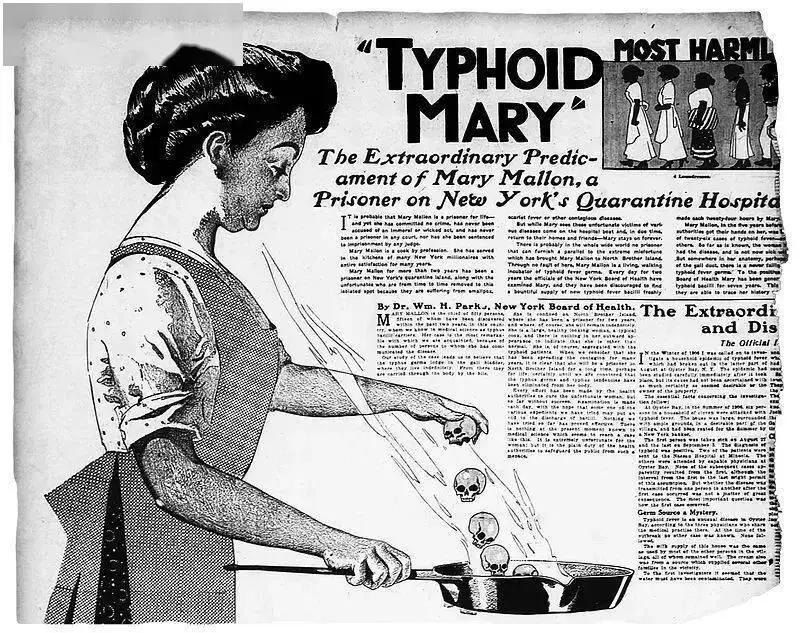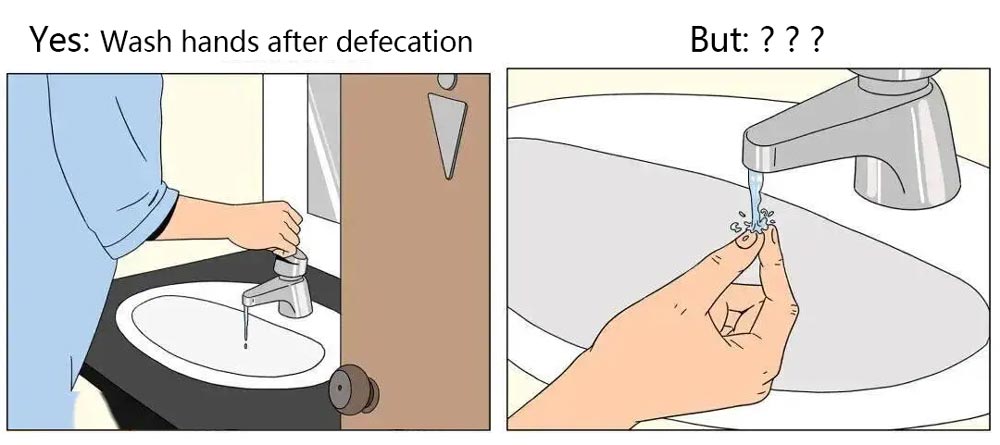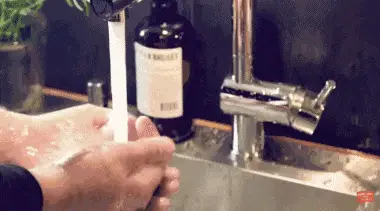You often hear that "diseases come from the mouth," but did you know?
Hands are the true carriers of disease. Let's take a look at the story of "Typhoid Mary."
Mary Mellen was the first "healthy typhoid carrier" discovered in North America in the early 20th century. She worked as a "cook" in several American homes and maternity hospitals, ultimately directly infecting over 50 people with typhoid fever.
During Mary's first interrogation in isolation, she admitted that she almost never washed her hands, making her highly contagious. Because Mary didn't wash her hands before and after meals, she would mix her salad with her bare hands after using the restroom, leading to several small outbreaks of typhoid fever in the United States.

October 15th is Global Handwashing Day. Let's learn more!
• On the Importance of Handwashing
Handwashing is one of the most effective ways to prevent the spread of disease.
Research shows that there are approximately 400,000 bacteria on a single hand. Every year, 3.5 million children under five die worldwide from diarrhea and acute respiratory infections. Washing hands thoroughly before and after meals can reduce diarrheal illnesses by approximately 50% and respiratory infections by 25%.
• Besides before and after meals
When else should you wash your hands?
- When wearing contact lenses;
- If you have infants or young children at home, before holding or feeding them, and after handling their feces;
- After playing or exercising outdoors;
- After shopping at the supermarket or mall;
- After physical contact with strangers in crowded places;
- After touching public objects such as elevator handrails, buttons, and public telephones;
- After handling pets;
- After handling coins;
- After covering your mouth and nose with your hands when sneezing;
- Before taking medication or applying medication to wounds.

How many people just "flush" with two fingers after using the toilet? That's really not okay!
• How to wash your hands properly?
Avoid these handwashing mistakes!
It's best to wash your hands with running water, not a basin of water, and rub them for at least 20 seconds. Don't just wash with water; use soap or hand sanitizer to effectively remove bacteria from the surface of your hands. Additionally, soap should be kept dry when stored, and the soap dish should be cleaned promptly. If the bottom of the dish isn't kept dry, the damp environment can breed bacteria. Also, it's important to note that sharing soap with multiple people is unhygienic.
• Handwashing Steps:
- Wet your hands with clean, running water.
- Follow the "7-step handwashing method."
- Rub your hands together for at least 20 seconds, about the time it takes to hum "Happy Birthday" twice.
- Rinse your hands thoroughly with clean, running water.
- After washing, let your hands air dry or wipe dry with a disposable paper towel.
• Avoid these misconceptions!
Myth 1: ❌ All hand sanitizers kill bacteria?
Hand sanitizers are mainly divided into standard, antibacterial, and antimicrobial types, so not all hand sanitizers have a sterilizing effect.
Only antibacterial types have a sterilizing effect, and generally, a sterilization rate greater than 90% is labeled antibacterial.
Myth 2: ❌ The more hand sanitizer you use, the better?
Many people, fearing they won't wash thoroughly, squeeze a large amount of hand sanitizer onto their hands and rub them vigorously while washing. In fact, such deep cleansing can damage the skin, preventing it from retaining moisture and making it more susceptible to germs.
Myth 3: Drying your hands with a towel after washing them?
After washing your hands, they should be dried naturally or with disposable paper towels. It's best not to use a towel, as reused towels, especially damp ones, can easily harbor germs and contaminate clean hands. Avoid using public towels.
Myth 4: Not washing your hands after hanging your clothes out to dry?
Bacteria from dirty clothes and the washing machine can be transferred to your clothes during the washing process.
During the drying process, your hands are likely to pick up these bacteria. While clothes are sterilized by ultraviolet light, your hands are often overlooked.

Have you washed your hands thoroughly today?

%20--%3e%3c!DOCTYPE%20svg%20PUBLIC%20'-//W3C//DTD%20SVG%201.1//EN'%20'http://www.w3.org/Graphics/SVG/1.1/DTD/svg11.dtd'%3e%3csvg%20version='1.1'%20id='图层_1'%20xmlns='http://www.w3.org/2000/svg'%20xmlns:xlink='http://www.w3.org/1999/xlink'%20x='0px'%20y='0px'%20width='256px'%20height='256px'%20viewBox='0%200%20256%20256'%20enable-background='new%200%200%20256%20256'%20xml:space='preserve'%3e%3cpath%20fill='%23FFFFFF'%20d='M194.597,24.009h35.292l-77.094,88.082l90.697,119.881h-71.021l-55.607-72.668L53.229,232.01H17.92%20l82.469-94.227L13.349,24.009h72.813l50.286,66.45l58.148-66.469V24.009z%20M182.217,210.889h19.566L75.538,44.014H54.583%20L182.217,210.889z'/%3e%3c/svg%3e)




